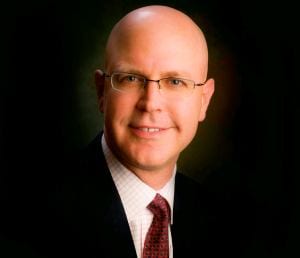
Germantown, Tenn-based Gregory Laurence, MD, FAAFP, BC ABFP, ABLS, is an unlikely cosmetic surgeon, indeed. Not a single close or distant relative pursued the vocation of medicine. “My oldest memories are a vision of me becoming a farmer,” he laughs. “But after I did decide that medicine was calling me, I fell in love with all aspects of aesthetic medicine. I saw the power that physical transformation had to change lives. That was every bit as exciting as bringing forth life from lifeless soil.”
That’s why today you’ll find him not on a tractor in the field but in a spotless clinical environment, wielding a scalpel and high-tech medical devices to restore deteriorating faces and bodies.
For Laurence, it seems everything has come together perfectly: His surgical skill, his taste for technology, and his drive to find a better way to maximize “patient delight” have given him great satisfaction as a cosmetic surgeon.
His spectrum of expertise is broad. He has substantial mastery in several areas of both facial and body cosmetic surgery, including procedures using 11 laser and energy devices.
Laurence’s practice has a full-service vascular program that includes the use of endovascular laser surgery. He has comprehensively embraced all cosmetic approaches to breast augmentation—including transaxillary, areolar, inframammary, and transumbilical—placing him in a group that comprises less than 1% of cosmetic surgeons.
PLAYING IT SAFE
But his greatest passion is for patient choice and patient safety.
“The priority is not for a surgeon to only provide a high-quality result,” he says. “Consistent, high-quality outcomes take a back seat to patient safety every time.”
Laurence believes that a “perfect storm” has arrived in cosmetic surgery. Procedures have become more effective, but less invasive. New local anesthesia techniques and anxiety-relieving parenteral drugs are safer.
“Emerging awareness of the value of brain monitoring allows us to better control our patients’ surgical experience,” he says. “Patients should educate themselves and feel free to ask for monitored oral sedation, brain-monitored anesthesia care (MAC), or brain-monitored general anesthesia.
“Deep anesthesia should be avoided for elective cosmetic procedures. Cases of malignant hyperthermia and post-anesthesia cognitive dysfunction—brain fog—are completely avoidable. Our goal is for 99% of our patients to have a pleasant experience and be able to ambulate pain-free immediately after surgery without nausea.”
His passion for patient safety and choice has been lauded by board-certified anesthesiologist Barry Friedberg, MD, of the nonprofit Goldilocks Anesthesia Foundation. Friedberg stated, “Dr Laurence is an early adopter of brain monitoring. There was a day when hand-washing was not universally recognized as a fundamental tenet of patient care, and so the day is coming when brain monitoring will be a basic measure of quality anesthesia care. Dr Laurence will be recognized as a pioneer.”
Paul Simpson is a contributing writer for PSP. He can be reached at [email protected].



